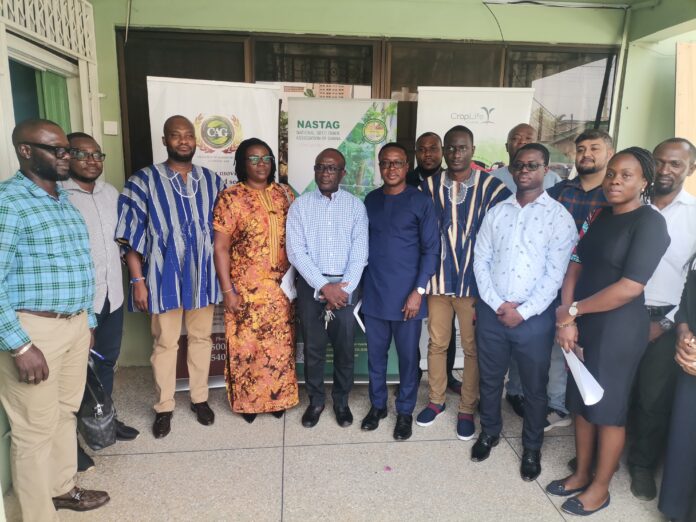The delay of the Minister of Finance and Economic Planning in granting tax exemptions to agricultural commodities as requested by the Minister of Food and Agriculture has a dire consequence for the sector which is already fragile due to global Price increases in agricultural machinery and agro-input leading to the high cost of production and could further worsen the food security situation in the country.
The stakeholders; Chamber of Agribusiness Ghana, CropLife Ghana, Peasant Farmers Association of Ghana (PFAG), and the National Seed Trade Association of Ghana (NASTAG) have called on the Finance Minister to grant tax exemptions on agricultural commodities as applied by the Former Agric Minister, Dr. Afriyie Akoto the 10th January 2023
Given the critical nature of agricultural and agribusiness activities in the country, it saddens to witness the locked up of agricultural goods at the ports due to exorbitant charges slapped on the goods by the way of import taxes.
As a result of this, there are several importers who are unwilling to make import the required agricultural inputs in an attempt to contribute to the growth of Ghana’s agriculture which is already battling with high input and machinery costs partly attributed to the Russian-Ukraine conflict, high cost of shipment, depreciation of the cedi and high transport cost associated with high fuel prices.
On average, the most farmer in 2022 produced at a loss, some have to scale down production, and others sought alternative businesses due to the high cost of production, a situation leading to a low food supply, high food prices contributing to the high record of inflation of 54% in December 2022. This situation will be compounded if taxes are further imposed on agro-based products.
The high taxes on agricultural commodities impede the government’s efforts to anchor the country’s developmental agenda on agricultural transformation such as investing in input subsidies, extension services; research, and market support system and encouraging the youth and private investors to engage in agriculture.
The current situation will therefore be counterproductive to the government’s own efforts as the high cost will scare investors from the sector that is already overburdened with risk and uncertainties.
Furthermore, most agro-based industries are shrinking and others are folding up due to the high cost of raw materials; the government should rather be interested in policies and actions that reduce the cost of doing business in the agricultural value chains rather than counterproductive policies like import duties on agro-products.
To save the country from the inbound catastrophe of food insecurity, the stakeholders are calling on;
- The Minister of Finance, as a matter of urgency, to speed up in granting the request by the Ministry of Food and Agriculture and grant exemptions to the agricultural commodities as captured in the application letter. This decision should be taken immediately without any further delay, as international prices of these goods might escalate if we continue to wait.
- That the Government and Parliament take a second and swift look at the Exemptions Act and take steps to amend and specifically include agricultural goods and equipment in the list of exemptions. The decision to have agricultural commodities considered as general goods and give discretion to a sector minister is a dangerous move that might not auger well for the sector Thank you. grievances








